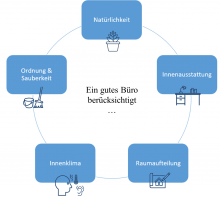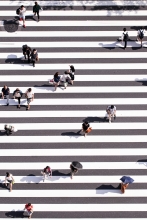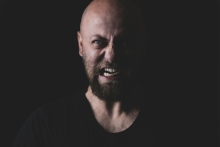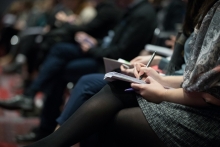-
DIE ZEIT | Nachrichten, News, Hintergründe und Debatten
Zollpolitik von Donald Trump: US-Gericht spricht Unternehmen Anspruch auf Zollrückzahlung zu
05/03/26 02:38:54
Ein Handelsgericht in New York hat entschieden: Importeure haben Anspruch darauf, unrechtmäßige Zölle zurückzubekommen – eine weitere Niederlage für die US-Regierung.
-
DER SPIEGEL - Schlagzeilen – Tops
Iran-Krieg und die Straße von Hormus: Hier hat das Regime die Weltwirtschaft im Würgegriff
04/03/26 21:01:00
Fast jeder dritte Liter Öl kommt aus der Region um den Persischen Golf, beim Flüssigerdgas sieht es ähnlich aus. Nun blockiert Iran die Straße von Hormus. Diese Karten zeigen, wie abhängig die Welt ist.
Iran-Krieg und Völkerrecht: Richard David Precht, Roderich Kiesewetter und Azadeh Zamirirad diskutieren
04/03/26 19:44:00
Im SPIEGEL-Talk diskutieren Richard David Precht, CDU-Politiker Roderich Kiesewetter und Iranexpertin Azadeh Zamirirad über die Zukunft des iranischen Volkes, den Flächenbrand in Nahost und den Schulterschluss von Friedrich Merz mit Donald Trump.
Russischer Gastanker im Mittelmeer: Das rätselhafte Schicksal der »Arctic Metagaz«
04/03/26 19:51:00
Ein russischer Gastanker liegt stark beschädigt im Mittelmeer, womöglich nach Drohnenbeschuss. An Bord war so viel Energie wie in fast 50 Hiroshima-Atombomben. Wie riskant war die Attacke?
Streit um Filmfest-Intendantin: Tuttle, Thesen, Temperamente
04/03/26 19:10:00
Die Berlinale-Chefin Tricia Tuttle darf bleiben, doch das Kernproblem ist nicht gelöst: Wie soll der Kulturbetrieb mit dem Nahostkonflikt umgehen? Die SPIEGEL-Rekonstruktion einer beispiellosen Beschädigung.
Wolfram Weimer: Verfassungsschutz-Abfrage bei Buchhandlungspreis-Nominierungen
04/03/26 18:49:00
Zuerst will Kulturstaatsminister Weimer »Hinweise« zu drei Buchhandlungen bekommen haben, dann befragte er den Verfassungsschutz. Nun werden sie von einem renommierten Preis ausgeschlossen – aber niemand weiß, warum.
-
DER SPIEGEL - Videos
Iran-Krieg und Völkerrecht: Richard David Precht, Roderich Kiesewetter und Azadeh Zamirirad diskutieren
04/03/26 19:44:00
Im SPIEGEL-Talk diskutieren Richard David Precht, CDU-Politiker Roderich Kiesewetter und Iranexpertin Azadeh Zamirirad über die Zukunft des iranischen Volkes, den Flächenbrand in Nahost und den Schulterschluss von Friedrich Merz mit Donald Trump.
Iran-Krieg: US-Torpedo versenkt iranische Fregatte vor Sri Lanka - Video
04/03/26 18:47:00
Der US-Verteidigungsminister spricht von der »ersten Versenkung eines feindlichen Schiffs durch einen Torpedo seit dem Zweiten Weltkrieg«: Diese Bilder sollen den U-Bootangriff auf eine iranische Fregatte vor Sri Lanka dokumentieren.
Donald Trump führt Iran-Krieg, während nebenan seine Clubmitglieder speisen
04/03/26 17:32:00
In Donald Trumps Clubhaus in Mar-a-Lago erlebte unser Reporter einen skurrilen Abend: Während der Präsident den Irankrieg verfolgte, speisten nebenan reiche Gäste. Dann kam der Commander-in-Chief an seinen Tisch.
Landtagswahl Baden-Württemberg: Junge Liberale kämpfen um FDP-Stimmen
04/03/26 15:35:00
Zwei 16-Jährige pushen die FDP auf Instagram, andere touren mit Bus, Merch und Freibier durchs Ländle. Kann das die Liberalen in Baden-Württemberg über der Fünfprozenthürde halten?
Texas: Einsatzkräfte retten Ballonfahrer aus 270 Meter Höhe
04/03/26 12:34:00
Der Ballon ist zerfetzt, der Korb baumelt in der Höhe: In Texas ist ein Heißluftballon mit einem Funkmast kollidiert. Drohnenaufnahmen zeigen die spektakuläre Rettungsaktion.
-
-
Wissenschaft-aktuell
Der Gipfel des Gletscherschwunds
17/12/25 00:00:00
In den Alpen könnten dieses Jahrhundert nahezu alle bis auf gerade mal 20 Gletscher verschwinden – Höhepunkt des Schwunds bis 2040 erwartet
Zugreifen mit Schallwellen
10/12/25 00:00:00
Neuer Chip kann über filigrane Struktur Schallwellen gezielt manipulieren und zu einem vielseitigen, akustischem Werkzeug verwandeln.
Warum die Erde unter Santorin bebt
05/12/25 00:00:00
Detaillierte Bebenanalyse offenbart eine komplexe Dynamik flüssigen Magmas unter dem hellenischen Inselbogen
-
Spektrum.de RSS-Feed
Meeresspiegelanstieg : Neue Berechnungen zeigen, dass der Meeresspiegel an vielen Küsten höher liegt als bisher angenommen.
04/03/26 17:00:00
Neue Analysen zeigen, dass der Meeresspiegel an vielen Küsten höher liegt als bisher angenommen. Selbst in IPCC‑Berichten finden sich Studien mit solchen Verzerrungen.
Statistisches Bundesamt: Herz-Kreislauf-Erkrankung häufigste Todesursache bei Frauen
04/03/26 15:15:00
Herzinfarkte und ähnliche Erkrankungen sind für Frauen gefährlicher als für Männer.
Unerwarteter Fund in Indien: Transparenter Mini-Fisch ohne Schädeldach entdeckt
04/03/26 15:00:00
In einem Brunnen fanden Forschende zufällig einen bislang unbekannten Fisch. Der Körperbau der neuen Art zeigt, wie wenig über verborgene Lebensräume unter der Erde bekannt ist.
Hemmer und Meßner erzählen: Kleine Geschichte eines (nahezu) unknackbaren Codes
04/03/26 14:00:00
Vor 400 Jahren fing eine Geheimbehörde in Frankreich den Briefverkehr ab – und verschlüsselte die königliche Post mit einem bombensicheren Code, erzählen unsere Kolumnisten.
Tierwohl: Ist meine Katze wirklich glücklich?
04/03/26 13:30:00
Eine Katze, die neugierig und aktiv ist, nehmen wir oft als zufrieden wahr. Dabei übersehen wir aber häufig andere Faktoren, die für das Wohlbefinden des Tiers wichtig sind.
-
Latest Science News -- ScienceDaily
A simple hand photo may be the key to detecting a serious disease
04/03/26 17:59:51
Researchers at Kobe University have developed an AI system that can detect acromegaly, a rare hormone disorder, by analyzing photos of the back of the hand and a clenched fist. The disease often develops slowly and can take years to diagnose, even though untreated cases may shorten life expectancy.
Study finds wild release can be deadly for rescued slow lorises
04/03/26 05:19:55
Returning rescued slow lorises to the wild may sound like a conservation success, but a new study shows it can turn deadly. Researchers tracked nine released animals and found that only two survived, with most killed in territorial attacks by other lorises. Scientists say better planning is essential to ensure wildlife releases actually help endangered species.
Climate models may be missing massive carbon emissions from boreal wildfires
04/03/26 18:50:50
Northern wildfires may be more dangerous for the climate than they appear. Researchers found that fires in boreal forests can burn deep into peat soils, releasing ancient carbon stored for hundreds or thousands of years. These slow, smoldering fires often look small from space, causing climate models to underestimate their emissions.
What snow monkeys’ steamy baths are really doing to their bodies
03/03/26 23:55:46
Japanese snow monkeys don’t just soak in hot springs to escape the winter chill — their steamy spa sessions may also be reshaping their invisible world. Researchers in Japan found that macaques who regularly bathe show subtle but intriguing differences in lice patterns and gut bacteria compared to those who stay dry. Surprisingly, sharing the hot pools didn’t increase their parasite load, challenging assumptions about disease risk.
Scientists just found the brain’s hidden defense against Alzheimer’s
04/03/26 03:38:45
A new study has uncovered why some brain cells are more resistant to Alzheimer’s damage than others. Researchers found a natural cleanup system that helps remove toxic tau protein before it can form harmful clumps. The study also shows that cellular stress can produce a dangerous tau fragment linked to Alzheimer’s. Strengthening the brain’s natural defenses could point the way to new treatments.
-
In-Mind
Der Trend zur offenen Büroumgebung: Segen oder Fluch für Performance und Gesundheit
02/03/26 12:23:29
 Um Kosten und Platz zu sparen, gestalten immer mehr Unternehmen ihre Büros als offene Bürolandschaften - sogenannte Open- oder Multi Space Büros – um. Doch was macht dies mit den Mitarbeitenden? Kann man so überhaupt produktiv arbeiten? Wird man nicht ständig abgelenkt? Dieser Blog-Beitrag fasst aktuelle Forschungsergebnisse zu diesem Thema zusammen.
Um Kosten und Platz zu sparen, gestalten immer mehr Unternehmen ihre Büros als offene Bürolandschaften - sogenannte Open- oder Multi Space Büros – um. Doch was macht dies mit den Mitarbeitenden? Kann man so überhaupt produktiv arbeiten? Wird man nicht ständig abgelenkt? Dieser Blog-Beitrag fasst aktuelle Forschungsergebnisse zu diesem Thema zusammen.
Geteiltes Glück geht unter die Haut: Wie gemeinsam erlebte positive Emotionen die Gesundheit im Alter beeinflussen
06/02/26 20:07:12
 Gemeinsam lachen, sich freuen und schöne Momente teilen - das tut nicht nur der Paarbeziehung gut, sondern auch der Gesundheit. Eine aktuelle Studie zeigt, dass gemeinsam erlebte positive Emotionen im Alter Stress im Körper reduzieren können.
Gemeinsam lachen, sich freuen und schöne Momente teilen - das tut nicht nur der Paarbeziehung gut, sondern auch der Gesundheit. Eine aktuelle Studie zeigt, dass gemeinsam erlebte positive Emotionen im Alter Stress im Körper reduzieren können.
Erzähl mir deine Geschichte und ich sag dir, wer du bist! Wie lässt sich unsere narrative Identität beschreiben?
24/01/26 12:55:45
 Unsere Persönlichkeit besteht aus mehr als nur groben Charakterzügen. Die Art, wie wir von unserem Leben erzählen, ist ebenfalls ein Teil davon. Die Forschung zur sogenannten narrativen Identität zeigt, dass unser persönlicher Erzählstil Mustern folgt, und diese Muster sogar im Zusammenhang mit unserem Wohlbefinden stehen. Wie diese Muster aussehen und warum es sich lohnt, besser zuzuhören, wenn andere und wir selbst von unserem Leben berichten, liest du hier.
Unsere Persönlichkeit besteht aus mehr als nur groben Charakterzügen. Die Art, wie wir von unserem Leben erzählen, ist ebenfalls ein Teil davon. Die Forschung zur sogenannten narrativen Identität zeigt, dass unser persönlicher Erzählstil Mustern folgt, und diese Muster sogar im Zusammenhang mit unserem Wohlbefinden stehen. Wie diese Muster aussehen und warum es sich lohnt, besser zuzuhören, wenn andere und wir selbst von unserem Leben berichten, liest du hier.
Single, männlich, gewaltbereit?
16/01/26 20:16:34
 Ein 13-jähriger Schüler wird beschuldigt, seine Mitschülerin umgebracht zu haben. Damit beginnt die Handlung der Netflix Serie „Adolescence“, die im Frühjahr 2025 Streaming-Rekorde bricht. Im Laufe der Serie stellt sich heraus, dass sich der Protagonist, Jamie Miller, der Incel-Szene zugehörig fühlt. Die Incel Bewegung findet auch in der Realität immer wieder im Zusammenhang mit Gewaltverbrechen ihren Weg in die Schlagzeilen. Forschende haben nun die Einstellung zu politischer Gewalt innerhalb der Szene untersucht.
Ein 13-jähriger Schüler wird beschuldigt, seine Mitschülerin umgebracht zu haben. Damit beginnt die Handlung der Netflix Serie „Adolescence“, die im Frühjahr 2025 Streaming-Rekorde bricht. Im Laufe der Serie stellt sich heraus, dass sich der Protagonist, Jamie Miller, der Incel-Szene zugehörig fühlt. Die Incel Bewegung findet auch in der Realität immer wieder im Zusammenhang mit Gewaltverbrechen ihren Weg in die Schlagzeilen. Forschende haben nun die Einstellung zu politischer Gewalt innerhalb der Szene untersucht.
Können Schulungen zur Suizidprävention Leben retten? Eine Online-Umfrage zur Relevanz onkologischer Suizidpräventionsschulung
09/01/26 11:51:41
 Krebspatient:innen haben ein erhöhtes Suizidrisiko – und trotzdem wird Suizidalität im Klinikalltag oft nicht ausreichend erfragt. Das Projekt TASC der Universitätsmedizin Mainz untersucht, inwiefern Schulungen wichtig sind, um Suizide langfristig senken zu können und für wen eine gezielte Schulung in der Onkologie dringend notwendig ist.
Krebspatient:innen haben ein erhöhtes Suizidrisiko – und trotzdem wird Suizidalität im Klinikalltag oft nicht ausreichend erfragt. Das Projekt TASC der Universitätsmedizin Mainz untersucht, inwiefern Schulungen wichtig sind, um Suizide langfristig senken zu können und für wen eine gezielte Schulung in der Onkologie dringend notwendig ist.
-
STERN.DE RSS-Feed Genuss - die neusten Meldungen zum Thema Genuss
Kurioser Clip: „Beste Werbung für Burger King“: McDonald’s-Chef blamiert sich mit Video
04/03/26 16:32:00
McDonald’s-CEO Chris Kempczinski will für einen neuen Burger werben, wirkt dabei aber, als wolle er nicht wirklich gern hineinbeißen. Das beschert ihm den Spott der Konkurrenz.
Köstlichkeit: Luxus trifft Tradition: So gestalten Sie Ihre eigenen Dubai-Ostereier
04/03/26 15:11:00
Vergessen Sie Schokohasen. Dieses Jahr feiern Sie Ostern mit Stil! Entdecken Sie, wie Sie edle Dubai-Ostereier ganz einfach selbst herstellen.
Das Revival des Likörs: Blindtest der stern-Redaktion: Welcher Eierlikör schmeckt am besten?
04/03/26 15:09:00
Eierliköre waren früher etwas für Rentner. Sie haben mittlerweile ihr angestaubtes Image abgelegt und erstrahlen im neuen Glanz. Wir haben sechs Neuinterpretationen blind getestet.
"One Pot Pasta": Italienische Spaghetti mit nur drei Zutaten: So gelingt das leckere Zitronen-Rezept
04/03/26 14:11:00
Sie möchten sich wie im Italien-Urlaub fühlen? Kein Problem! Mit nur drei Zutaten kochen Sie leckere "One Pot Pasta" mit einer zitronigen Note. Hier das Rezept.
Sonntagskuchen: Wie bei Oma: Vier einfache Rezept-Tipps für den perfekten Blechkuchen
04/03/26 12:11:00
Egal welches Rezept man ausprobiert, nie schmeckt es so gut wie bei der Großmutter. Doch es gibt einige Tricks, mit denen Sie sich zumindest annähern können.